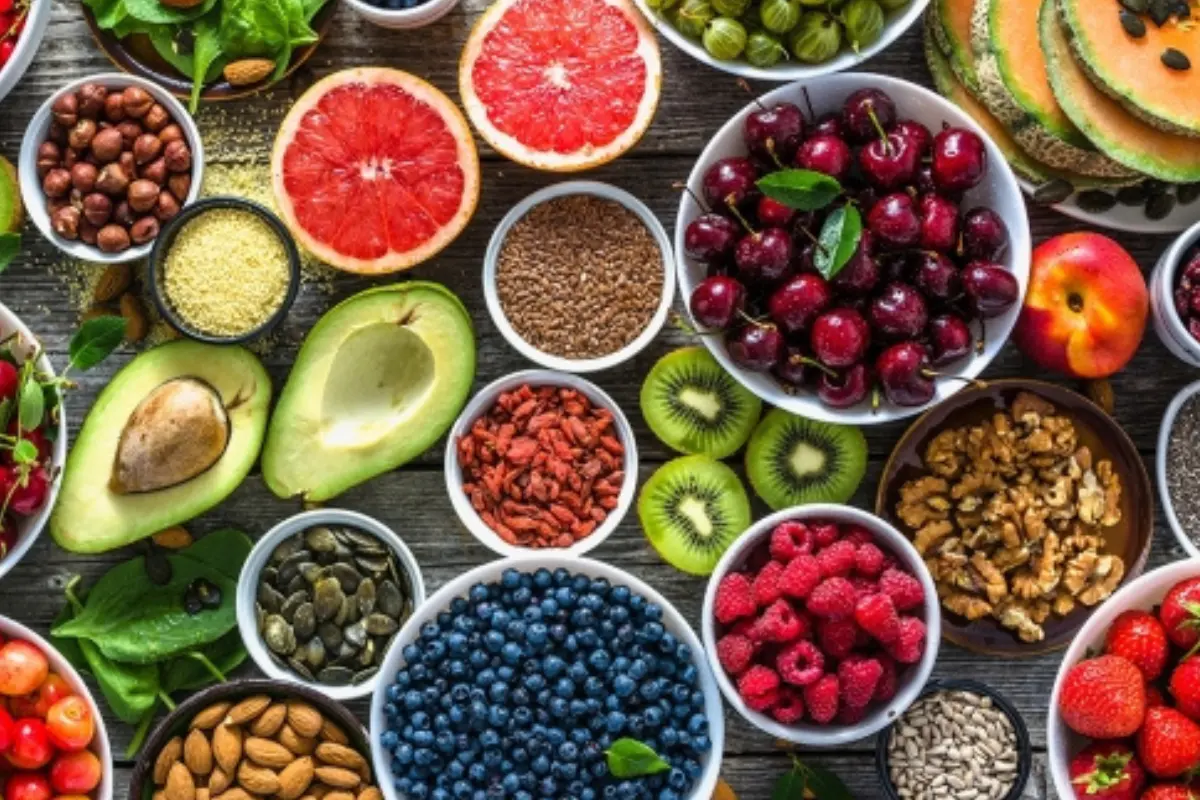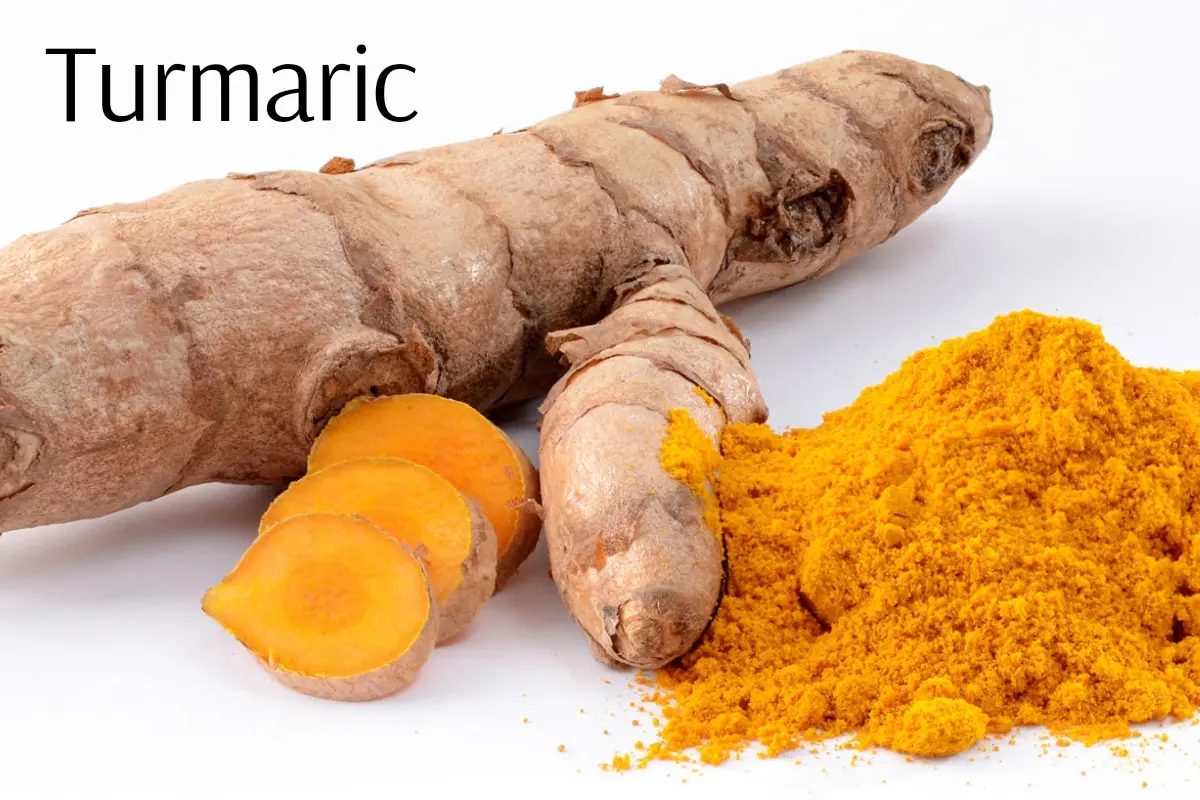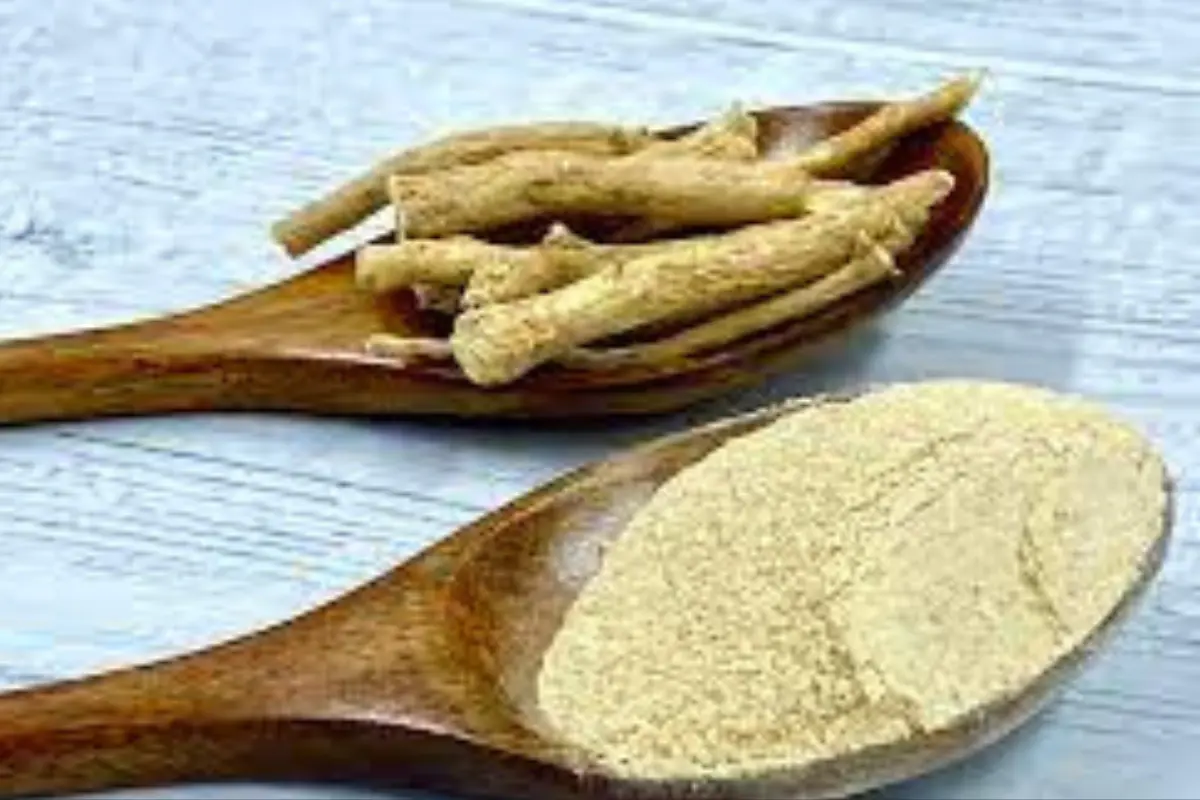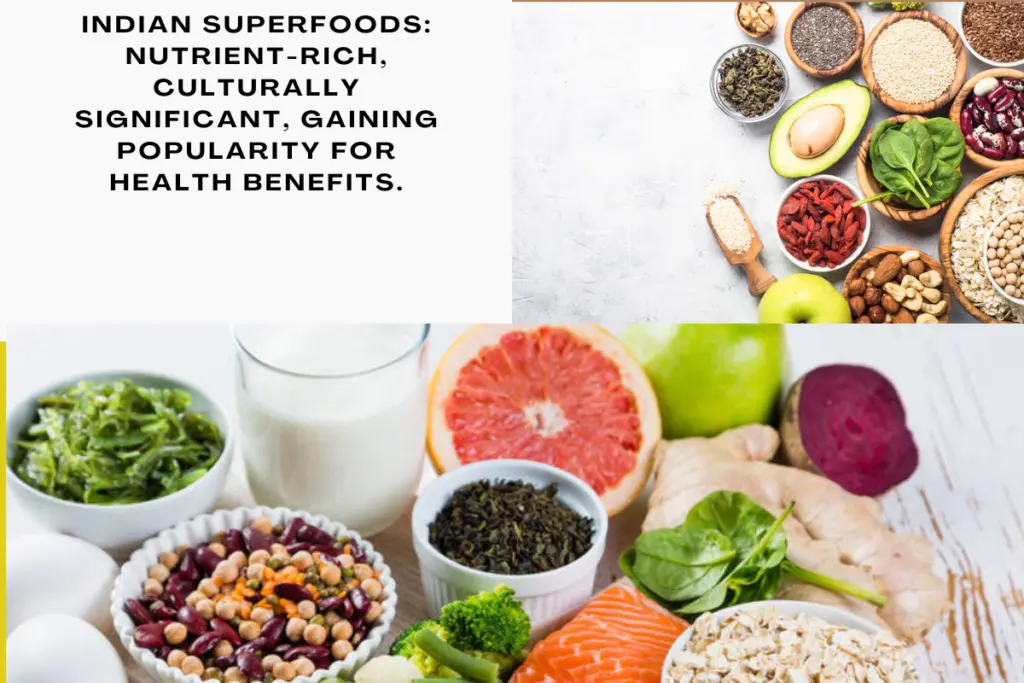Introduction:
Get a taste of flavors and health from Indian Superfoods. These are not mere ingredients but the spirit of a tradition whose baton is handed on from generation to another.
The essence of Indian Superfoods lies in the yellow hues from turmeric and lentils, a nutritional power house. It is not only about eating; it’s a trip into the very legacy of taste and provenance.
Thus, let’s start on a yummy journey into the world of Indian superfood. It’s much more than food; it is a voyage that relishes the joy of tradition and health!
However, food habits in India is culturally pluralistic. Besides the delicious tastes and aromas, another important characteristic of Indian food is its numerous Superfoods that have different health benefits attached to them. In this article, we unveil the universe of Indian Superfoods with its inestimable qualities for your daily meal.

The rise of Indian Superfoods
Perhaps, for centuries Indian superfoods have enjoyed popularity due to the several health advantages and cultural impacts. These foods have high nutritional density, antioxidant capacity and are used in traditional medicine. It is the unique and health food cultures that have given rise to an interest in Indian superfoods, not necessarily for their nutritional value but also as a promotion of total well being.
Turmeric: The Golden Spice of India
1. History and Cultural Significance of Turmeric: In the past, turmeric has not only been used as a culinary product but also for medicinal use in India. It is said to be a major cultural and religious symbol, which Indians apply in their ceremonies.
2. Health Benefits of Turmeric: Turmeric contains several health benefits because of curcumin that is a strong antioxidant and anti-inflammatory compound. It can reduce the risk of developing chronic conditions such as Alzheimer’s, cancer and heart disease. The turmeric also aids in digestion, boosts the immune system and results in perfect skin.
3. How to Incorporate Turmeric into Your Diet: Various forms of cooking with turmeric can be used. It is applied in curries, soups; stews and rice dishes together it may be used for turmeric tea. When taken with black pepper or a fat source, turmeric is absorbed more readily.
Furthermore, there are turmeric supplements and it is advisable to seek medical advice before starting any drug.
However, while turmeric provides numerous health benefits, it is important to use it as a part of the balanced diet and not rely on its ability solely for any particular condition.

Moringa-The Miracle Tree:
1. Health Benefits of Moringa: Moringa for years has been used in the traditional medicine because of its numerous health advantages. It can help immune system, improving digestion and vascular function. The anti-diabetic, anticancer and antiaging properties of moringa are also attributed to it.
2. Delicious Ways to Enjoy Moringa: However, moringa leaves can be added to various cooking techniques. You can add them to smoothies, salads, soups or stir-fries and make moringa tea. Moringa powder obtained from dried and ground moringa leaves can be included in the food or used as a supplement.
Amaranth – The Nutrient-Rich Grain:
1. Nutritional Profile of Amaranth: Among the grains that are gluten-free and has a lot of nutritional value is amaranth. It is an excellent source of protein, fiber iron magnesium and phosphorus. It is also rich in antioxidants that include vitamin E and phenolic compounds, which are helpful.
2. Health Benefits of Amaranth: Amaranth offers several health benefits. It may decrease cholesterol levels, aid cardiovascular health, enhance digestion and boost weight loss. Since the grain is high in protein, it provides an ideal selection for vegetarians and vegans.
3. Culinary Uses of Amaranth: There are many ways to cook amaranth. It can be used as a substitute for rice or quinoa, incorporated into soups and stews; it may even be popped like popcorn. Amaranth flour can be used in baking and gives baked products a nutty taste.
However, listening carefully to what your body says about that addition and consulting with an expert regarding special diets or health issues is always recommended.

Ashwagandha The Ayurvedic Adaptogen:
Ashwagandha is like a natural stress manager. It helps your body handle stress better and boosts your energy. It’s also linked to supporting your immune system and keeping your brain sharp. Just a heads up, it’s good to check with a healthcare pro before adding it to your routine.
Ashwagandha is like your personal stress buster. It helps you stay cool under pressure and brings a steady dose of energy without the ups and downs of caffeine.
Picture it as a superhero for your immune system, keeping it strong and ready for action. Some even call it a brain booster, helping with memory and focus – your very own mental sidekick.
And that’s not all – with its antioxidants, it’s like a wellness partner, supporting your body from the inside out. Just a heads up, though: before making it a daily thing, it’s smart to chat with a healthcare pro. Your body’s unique, and they can give you the best advice.

Gooseberry – (Amla) The Nutrient-Packed Berry:
Nutritional Profile of Gooseberry: Amla or gooseberries are small and sour berries which contain a lot of vitamins. They provide vitamin C, antioxidants, fiber and several minerals such as calcium and iron.
Health Benefits of Gooseberry: Gooseberries offer numerous health benefits. They can contribute to the strengthening of immunity, normalization of digestion, support for cardiovascular health and also healthy skin and hair. The high vitamin C content can help ward off colds and boost the immune system.
Culinary Uses of Gooseberry: Raw gooseberries are edible but rather sour. They are commonly used in jams, jellies, chutneys and desserts. They can also be dehydrated or preserved using vinegar for longer storage.
Incorporating gooseberries into your diet may be a delicious approach to add more nutrients in your meals. Nevertheless, if you have any special dietary needs or medical conditions then it is recommended to consult a health practitioner before making drastic changes in your food habits.

Fenugreek – The Versatile Herb:
Culinary Uses: Fenugreek is a multipurpose herb which finds its application in Indian, Middle Eastern and Mediterranean cooking. Its seeds and leaves impart a unique flavor to food, which is usually referred to as slightly bitter with hints of nuttiness.
Health Benefits: Fenugreek is said to have a number of health benefits. It may assist in controlling blood sugar levels, digestion support, weight control and encourage breast milk production.
Other Uses: The powder or paste made from fenugreek seeds can be used for hair and skincare. It also serves as a herbal medication for many diseases like sorethroat and inflammation.
Although fenugreek is considered harmless to use, it should be said that some people may have an allergy. Furthermore, if you have any pre-existing medical conditions or are taking medication then it is advisable to seek advice from a health care professional before consuming fenugreek in your dietary plan and skin regimen.
Ghee – The Clarified Elixir:
Traditional Indian Ingredient: Clarified butter, known as ghee in India and used extensively for cooking purposes by Indians is a type of clarified butter. It is nutty and has a high smoke point, making it ideal for cooking.
Nutritional Profile: Ghee contains healthy fats such as saturated fat and omega-3. It also has vitamins A, D, E and K along with antioxidants.
Health Benefits: Health benefits of ghee are believed to be many. It could aid in digestion, strengthen the immune system and nourish both body and mind.
Lactose and Casein: Since ghee is produced by separating the milk solids from butter, it can be used by people who are lactose intolerant. Nevertheless, it contains small amounts of lactose and casein; therefore people with severe allergies should be careful.
Ghee should be used in moderation as a part of balanced diet. It is always recommended that you consult with a health care professional if there are any particular dietary concerns or medical conditions before using ghee in your food.
Indian Superfoods you must eat: vedio tutorial:
https://youtu.be/HLBc1SX-qXc?si=DuWbgYoM5cVc209I
Conclusion
In summary, Indian superfoods offer a wide range of health-enhancing features. These elements are a part of Indian cuisine for decades, from the legendary turmeric with its important anti-inflammatory and antioxidant characteristics to the protein rich lentils and nutritious leafy greens. Incorporating these superfoods into one’s diet can help strengthen the immune system, improve digestion and make a person healthy in general. But it is crucial to remember that dietary choices should be based on a comprehensive approach towards nutrition, which involves an overall balanced diet and regular physical activity. This vibrant cuisine can be savoured by people, who at the same time benefit from using Indian superfoods’ health benefits for a more balanced life.
FAQS
What is the power of superfood?
Superfoods have exceptional health benefits due to their high nutrient content and antioxidant properties. They can support overall health, reduce inflammation, promote heart and brain health, and aid in weight management.
Which are superfoods India?
Some superfoods in India include turmeric, lentils, leafy greens, and spices like cumin and coriander.
What is a superfood summary?
summary?Superfoods are nutrient-dense foods that provide exceptional health benefits due to their high content of vitamins, minerals, antioxidants, and other beneficial compounds. They can support overall well-being and address specific health concerns when incorporated into a balanced diet.
Why do people believe in superfoods?
People believe in superfoods because they are often nutrient-dense and have been associated with numerous health benefits. While individual foods cannot magically cure all health problems, incorporating a variety of nutrient-rich foods into a balanced diet can contribute to overall well-being.
What superfoods are good for health?
Good superfoods for health include berries, leafy greens, nuts, fatty fish, quinoa, avocado, broccoli, turmeric, Greek yogurt, and sweet potatoes.
